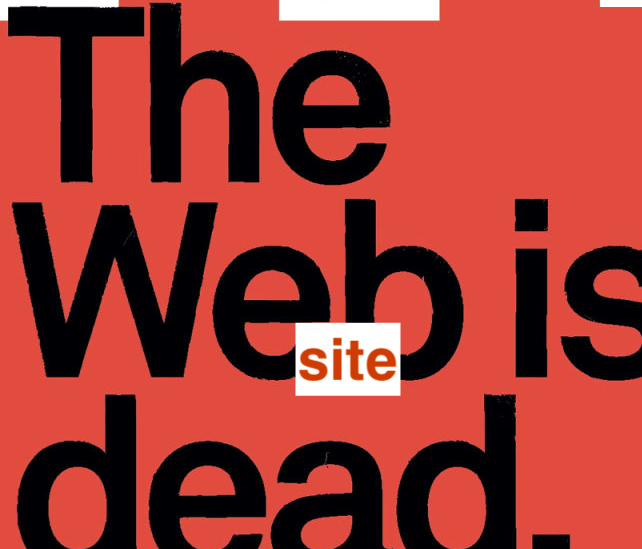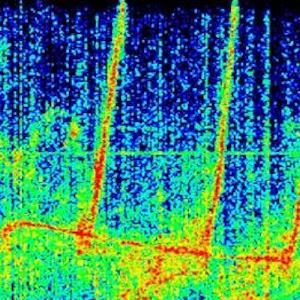vns matrix 'merchants of slime'
Cyberfeminism.
Matrix (articulated as V.N.S. a fauxcronym) was a cyberfeminist media art collective formed in Adelaide (South Australia) in 1991. From 1991 until 1997 the group expanded and presented installations and public art works in Australia and overseas, working with new media, photography, sound and video. An era which would would witness an indelible change, the interaction of technology with gender, in-turn altering the role of human identity forever. William Gibson's cyber-punk sci-fi would step into reality yet via a potent feminist idea. Original co-conspirators to this manifesto and imagery were Virgina Barratt, Julianne Pierce, Francesca da Rimini and Josephine Starrs.

The primary exhibit of VNS (a large scale billboard), inspired by theorists Donna Haraway and Sadie Plant, which went unto explain their seminal text “A Cyberfeminist Manifesto for the 21st Century”. The term “cyberfeminism” first appeared as a concept and idea within this very manifesto and this work was widely distributed within converging circles and emerging underground culture. The voices did not remain native to Australia, finding echoes in Italy, Germany, Spain, Argentina and Japan. In the manifesto, VNS Matrix stated that, “we are the modern cunt/positive anti reason/unbounded unleashed unforgiving” and that, “we are the virus of the new world disorder/rupturing the symbolic from within/saboteurs of big daddy mainframe/the clitoris is a direct line to the matrix/the VNS Matrix”
Cyberfeminism.
Matrix (articulated as V.N.S. a fauxcronym) was a cyberfeminist media art collective formed in Adelaide (South Australia) in 1991. From 1991 until 1997 the group expanded and presented installations and public art works in Australia and overseas, working with new media, photography, sound and video. An era which would would witness an indelible change, the interaction of technology with gender, in-turn altering the role of human identity forever. William Gibson's cyber-punk sci-fi would step into reality yet via a potent feminist idea. Original co-conspirators to this manifesto and imagery were Virgina Barratt, Julianne Pierce, Francesca da Rimini and Josephine Starrs.

The primary exhibit of VNS (a large scale billboard), inspired by theorists Donna Haraway and Sadie Plant, which went unto explain their seminal text “A Cyberfeminist Manifesto for the 21st Century”. The term “cyberfeminism” first appeared as a concept and idea within this very manifesto and this work was widely distributed within converging circles and emerging underground culture. The voices did not remain native to Australia, finding echoes in Italy, Germany, Spain, Argentina and Japan. In the manifesto, VNS Matrix stated that, “we are the modern cunt/positive anti reason/unbounded unleashed unforgiving” and that, “we are the virus of the new world disorder/rupturing the symbolic from within/saboteurs of big daddy mainframe/the clitoris is a direct line to the matrix/the VNS Matrix”
The original group disbanded around 1997 trailing out it's ultimate directives as the "Bitch Mutant Manifesto” showing it's middle finger to all techno-patriarchies and capitalist info-spheres with the words “suck my code” amongst other blasphemous exhortations. Read Complete Works of VNS Here
Cyberfeminism as a cultural and rebellious spark would be lost against the tides and turns of the internet and it's sheer amplitude panning out into new modes of propaganda, activism, sharing and media creation. Yet the latent force of cyberfeminism would mutate, as millennial feminists would re-activate the "new-world disorder". Post 2010, a gradual rise of feminist music, film, photography, activism along-with increased hacking of state secrets and a surge of whistleblowers reflected massively inside social media structures would revitalize certain aspects of cyberfeminism, in theory as well as practices. It's highly debatable to claim that cyberfeminism created the way for public discourse covering ideas such as disrupting authoritarian states, dismantling patriarchal cannons and exposing corporate imperialism the world over. As seen and heard at an international seminar hosted recently by ICA this year. The seminar witness to thousands of participants ranging from writers, musicians, artists, techies, activists, coders and nerds under one umbrella to discuss myriad problems ranging from sexual harassment to privacy to internet surveillance to gender bias in knowledge and technology. A potent question at such intersecting points of interest being asked, "Are we at the doors of post-cyberfeminism? " Matthias Gross, author of Ignorance and Surprise and several other books. recently posed the question if concepts like Antifa, Bitcoin and Blockchain have any relationship with cyberfeminism and increasing public cyber-governance ethics. We are living in the times of the 'Unknown known' ?!
Recently Guardian UK published a feature covering the re-insurgence of cyberfeminism and it's various new manifestations. Related public events include The Conference developed in partnership with Abandon Normal Devices A.N.D alongside “The Art of Bots” program, which took place at Somerset House, London last April 2016. Disruption Network Lab is an ongoing platform of events and research focused on art, feminism, hacktivism and disruption.
Recently, pioneer cyber-feminists Faith Wilding and Diana McCarty commented on the wariness felt in the early days of the internet circa mid-1993/94. For certain feminists engaging with the internet back then, would mean dealing with military-industrial systems that created the web in the first place. Some thought that it was just too whacky and even paranoid back then. Yet in our post-911 world, where violent states justify online surveillance with the help of a police state, witness to mass civilian incarceration and punishment. The issue has become worldwide public discussion. What these cyberfeminists harked back then, has now turned into reality witness Chelsea Manning, Edward Snowden, Julian Assange, Thomas Drake, Aaron Swarzt and thousands of unsung people who dare challenge the state and an undemocratic neo-conservative system. Everyday crimes committed by google, mac, microsoft, facebook and your state funded agency spying on your personal data and life. Faith Wilding points outs with evidence that "even the vocabulary we use online is mined, all feeding into a system of machine learning"






























0 -